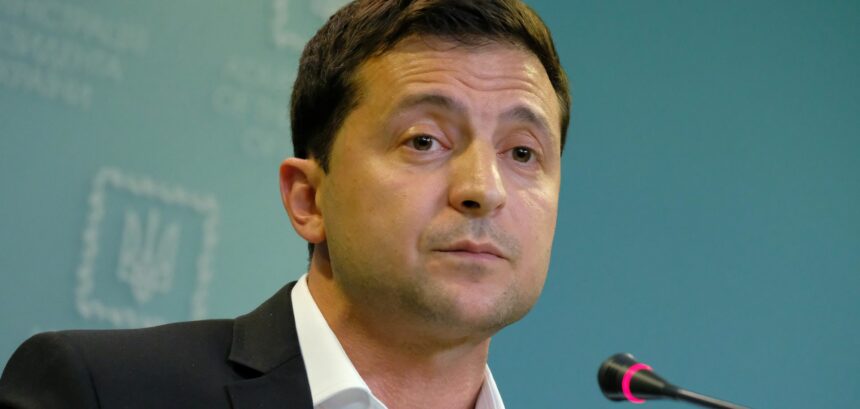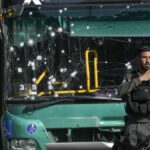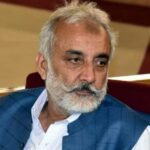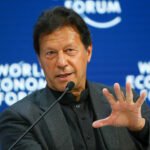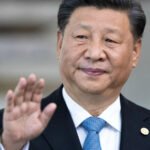He claimed that the Russian “formula of terror” had pushed “millions of people to stay without energy supplies, without heating, without water” in the bitter weather. He delivered this statement through videolink to the UN Security Council.
According to Ukraine, the strikes resulted in at least seven deaths. Atomic power plants stopped operating.
The three factories that were still under Ukrainian control were cut off from the grid, and the Zaporizhzhia facility, which is the biggest in Europe, was once more obliged to depend on diesel generators to power its cooling systems and essential safety apparatus.
The Russian-controlled Zaporizhzhia plant has been damaged by frequent bombardment, and the International Atomic Energy Agency (IAEA) has expressed grave worry about this situation.
Although not immediately impacted, Wednesday saw widespread shortages in neighbouring Moldova.
Moscow has increased its attacks on Ukraine’s electricity infrastructure as winter approaches.
More than half of the nation’s system has to be repaired, according to officials, as a result of Russia’s missile attacks on power plants, which they claim have done “colossal” damage.
Mr. Zelensky stated late on Wednesday that the situation in Kyiv remained “very difficult” and that efforts to bring back electricity would go on through the night.
At least 80% of the citizens of the capital, according to Mayor Vitali Klitschko, are without electricity or water.
However, Mr. Zelensky claimed that some other Russian missile-hit cities, notably Cherkasy, Lviv, and Odesa, had been able to re-establish power.
Russian President Vladimir Putin, according to US ambassador to the UN Linda Thomas-Greenfield, is “weaponising winter” to cause unimaginable agony.
“Having struggled on the battlefield, Moscow is now adopting a cowardly and inhumane strategy that punishes Ukrainian men, women and children,” she added.
According to emergency services, a newborn baby was murdered in the southern Zaporizhzhia area when a missile struck a maternity hospital.
Moscow reportedly fired 67 cruise missiles, 51 of which were successfully shot down by Ukraine’s air defences, according to General Valeriy Zaluzhniy, commander of the country’s armed forces.
The Ukrainian military reported that Russia has also re-deployed assault drones.
According to the energy ministry, the majority of Ukraine’s thermal and hydroelectric power plants had to close as well.
The strikes were not discussed by Kremlin spokesperson Dmitry Peskov during his visit to Yerevan, the capital of Armenia, but he did say that the “future and success of the special operation,” which is Moscow’s phrase for its conflict in Ukraine, “are beyond doubt.”
According to Moscow, targeting Ukraine’s electrical infrastructure would make Kyiv less capable of fighting and force its leaders to the bargaining table.
Mr. Zelensky encouraged the UN to assist Ukraine more, and Kyiv sought the Security Council meeting.
Following similar remarks from the US, French President Emmanuel Macron stated that Russia’s attacks on infrastructure used by civilians represented a war crime.
In response to Russia’s onslaught on Ukraine, the European Parliament recently labelled Russia a “state sponsor of terrorism.”
Due to what EU officials claimed as a denial-of-service attempt by “pro-Kremlin” hackers, the Strasbourg assembly website fell down shortly after the parliament motion was approved.
According to deputy Prime Minister Andrei Spinu’s Twitter post, more than half of Moldova is still without energy. He said that a “massive blackout” was the result of the strike on Ukraine’s energy infrastructure.
A third of Moldova’s population lives in the capital city of Chisinau, where power was quickly recovered.
According to Mr. Spinu, several power outages also occurred in Moldova as a result of the strikes on Ukraine on November 15. Mobile networks were adversely impacted as well.
As of March, when Moldova and Ukraine were linked to the European grid, one of the contact points on the electricity line between Moldova and neighbouring Romania automatically turned off if Ukraine was damaged to protect the system: “We reconnect once Ukraine has assessed the damage,” said energy policy researcher Sergiu Tofilat.
President Maia Sandu of Moldova claimed that Russia had “left Moldova in the dark” as a result of the outages.
She claimed on Facebook that “Russia’s war in Ukraine kills people, damages residential buildings and energy infrastructure with missiles.” “But the electricity supply can be restored. We will solve the technical problems and we will have light again. All state institutions are working in this direction.”




